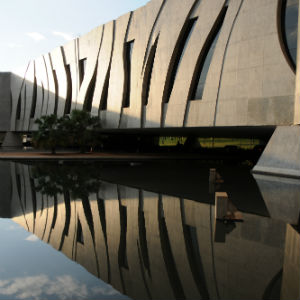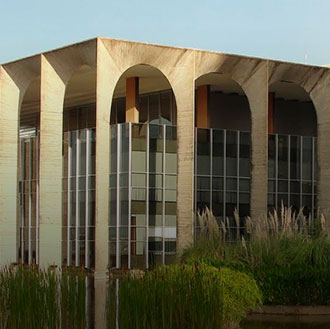Acquisition of Rural Properties in Brazil and the Mining Industry
There are currently in Brazil a series of restrictions for the acquisition or lease of rural real estate properties1 by foreign individuals and legal entities. These are also applicable to Brazilian legal entities the voting capital of which is directly or indirectly controlled by foreign individuals or entities. Such restrictions are set forth in Brazilian Federal Law No. 5,709 October 7, 1971, as per its most recent interpretation by the Brazilian government. The most important of such restrictions can be summarized as follows:
• Foreign individuals residing in Brazil may acquire a single property with an area of up to 3 exploration units (Módulo de Exploração Indefinida – “MEI”)2, but cannot acquire rural real estate properties the aggregate area of which exceeds fifty (50) MEIs. The following acquisitions are subject to the prior approval of the Brazilian agrarian reform agency (Incra): (i) a rural real estate between 3 and 50 MEIs3; and (ii) more than a single real estate property.
• The acquisition of rural real estate properties by foreign legal entities or by Brazilian entities directly or indirectly controlled by foreigners is conditioned upon the implementation of a project pertaining to one of the following activities: (i) agriculture; (ii) cattle raising; (iii) industrial projects; or (iv) land settlement. Any project to be developed in the country has to be previously approved by the Ministry of Agriculture. The acquisition or lease of areas exceeding 100 MEIs requires prior authorization from the Brazilian Congress.
• The aggregate area owned by foreign individuals and entities or by Brazilian entities subject to foreign corporate control shall not exceed 25% of the area of each municipality where such properties are located. Furthermore, should 2 or more foreigners of the same nationality be entitled to ownership of rural real estate properties in the same municipality, the aggregate area owned by them cannot exceed 10% of the area of such municipality. Any acquisition by a foreign individual or legal entity of rural real estate exceeding the limits mentioned above must be previously authorized by the Brazilian Congress.
• Law No. 8,629 of February 25, 1993 sets forth that all restrictions of Law 5,709 are applicable to the lease of rural real estate properties.
The restrictions of Laws 5,709 and 8,629 with respect to Brazilian entities subject to foreign control were not applied in Brazil between 1994 and 2010. In 1994, Legal Opinion AGU No. LA 04/94 of the Federal Attorney-General concluded such restrictions were not compatible with the Brazilian Constitution. In 2010, Legal Opinion AGU No. LA 01/10 reverted this interpretation.
The above-mentioned restrictions are a cause for concern for foreigners potentially interested in performing investments involving rural real estate in Brazil. This matter is also relevant for foreign groups of the mining sector.
Brazil is known to have a vast geological potential, attractive for players in the mining industry. However, many existing mines, research areas and greenfields in Brazil are located in areas currently recorded as rural real estate properties.
As a result of this, foreign mining groups interested in acquiring the corporate control of existing Brazilian mining companies shall pay particular attention to the ownership records of the real estate properties where the research or mining activities are performed. If the target Brazilian mining company is entitled to ownership of the relevant real estate, then the restrictions of Law 5,709 apply, and the transfer of the corporate control of such Brazilian entity to a foreign group would be deemed null and void.
A crucial aspect to be taken into account by foreigners interested in performing mining activities in Brazil is that Brazilian mining laws and regulations do not require the properties where mines or research areas are located to be owned or leased by the person entitled to the applicable mining right, although occasionally mining entities do acquire or lease the areas where their mining rights are located.
A mining entity entitled to a research authorization (Autorização de Pesquisa), granted by the Brazilian Mining authorities (Departamento Nacional de Produção Mineral - DNPM) or a mining concession (Concessão de Lavra), granted by the Brazilian Ministry of Mining, is required to reach settlements with the applicable landowners or persons entitled to possession of the applicable areas, and to submit the settlement to the Brazilian mining authorities, in order to be entitled to perform mining activities in the sought areas.
There are, of course, cases where the settlement intended by the applicable landowner or possessor is deemed excessively costly for the mining entity. In these situations, it is possible to devise alternative structures so as to allow for the acquisition by the mining entity of alternative in rem rights over the sought areas.
The legal restrictions for the acquisition and lease of rural real estate properties by Brazilian entities subject to foreign control should not be seen as an impediment for foreign mining groups seeking to invest in mining activities in Brazil. Two more relevant scenarios should be commented on:
• Foreign mining groups seeking to acquire the corporate control of existing mining companies entitled to ownership or leases of rural real estate properties where mining activities are performed shall seek to negotiate specific conditions precedent comprised by the restructuring of the real estate properties, in such a manner that they are either no longer deemed rural real estate or cease to be owned or leased by the applicable target company.
• On the other hand, if the applicable foreign mining group is interested in incorporating a Brazilian entity to request research authorizations from the DNPM (rather than acquiring companies entitled to previously existing mining rights), it shall seek appropriate settlements with the applicable landowners, which may include structures involving in rem rights other than ownership.
1 Brazilian Law No. 8,629, of February 25, 1993 defines a rural real estate as that in which extractive agricultural, cattle raising or agro industrial activities are performed. However, Brazilian Federal and local governments maintain records of real estate properties in Brazil, which may classify a given real estate as rural despite the activities performed therein not being comprised within the legal definition.
2 MEI is a measurement unit defined by the Brazilian agrarian reform agency (Incra). The MEI is subject to alterations by Incra in case of changes in the economic conditions of a given region. Currently the size of the MEI ranges from 5 hectares to 100 hectares.
3 If the rural real estate has an area exceeding 20 MEIs, a project for its exploitation will also have to be submitted to and approved by Incra.















(1).jpg)




.jpg)










.jpg)




